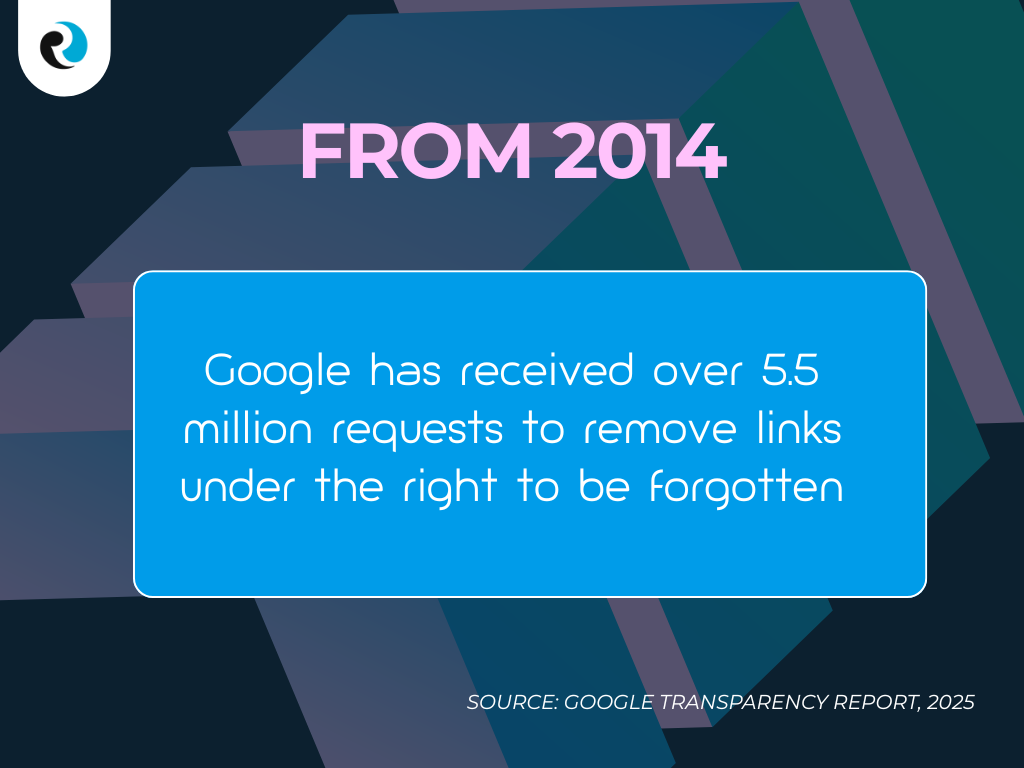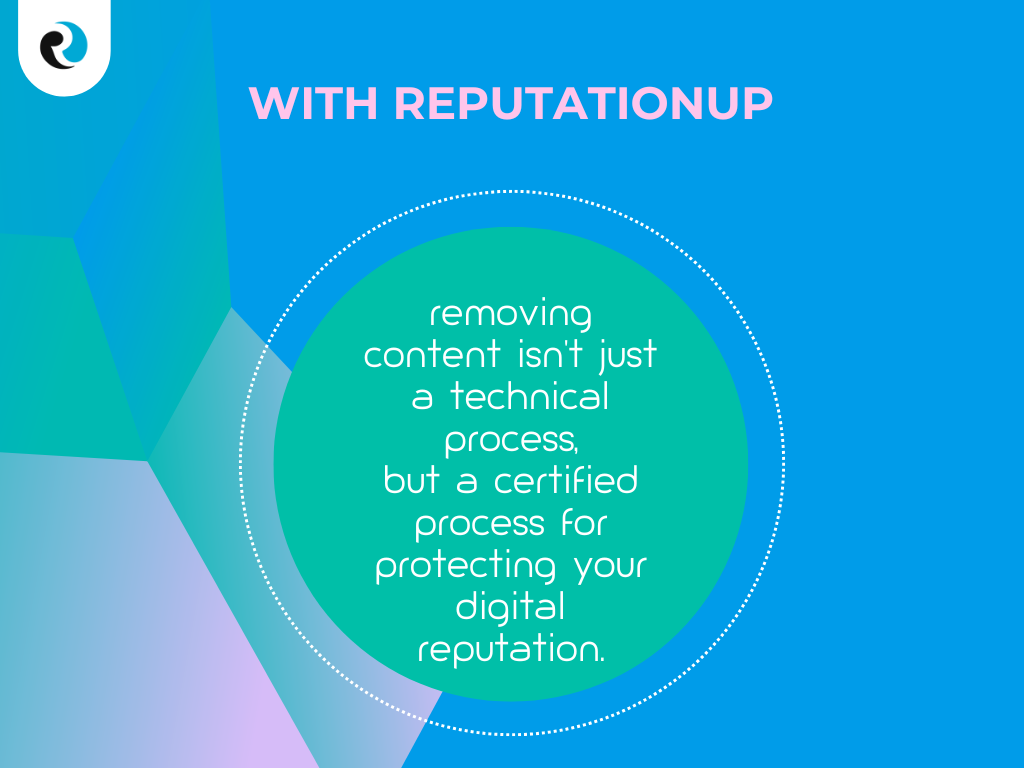We live in an era where every digital trace can remain online forever. A piece of news, a comment, an image: if left untreated, they can continue to impact your reputation even years later. For this reason, it’s essential to understand the mechanisms through which you can partially “disappear” from Google—that is, exercise the right to be forgotten —to protect your privacy and digital image.
In this article, we’ll explore what the right to be forgotten really means, when it’s legally recognized, how to file effective requests, and what strategies you can implement to regain control of your online presence.
What is the right to be forgotten?
The right to be forgotten—also known as the “right to erasure” or “right to effacement”—entitles the data subject to obtain the deletion or de-referencing of personal data that is no longer relevant, is incorrect, or harms the data subject’s reputation. This right is enshrined in Article 17 of the GDPR, which establishes the right to erasure without undue delay when certain conditions are met.
Its implementation in the online context was born from a landmark decision by the Court of Justice of the European Union, in the case Google Spain vs. AEPD and Mario Costeja González, which imposed on search engines the obligation to evaluate requests to remove personal links when they are “inappropriate, irrelevant or no longer relevant”.
This is not an absolute right: it is necessary to balance the protection of the individual with the right to information, and each request must be evaluated on a case-by-case basis.

When you can request data removal
Before starting a procedure, you should check whether the content you wish to remove meets the GDPR requirements. Specifically, the right to be forgotten can be exercised when:
- The data is no longer necessary for the purposes for which it was collected or processed.
- You have withdrawn your consent, and there is no other legal basis that justifies the processing.
- The data subject objects to the processing, and there are no overriding legitimate grounds to maintain it.
- The data was processed unlawfully or in a manner that does not comply with the GDPR.
- The content has become outdated, inaccurate, or harmful to personal reputation.
- The contents concern facts that are no longer of public or journalistic interest.
Only when one (or more) of these conditions is met, it may be reasonable to make a request for deletion or de-indexing.
For example, if an article is many years old and concerns events that are now outdated, you may have a good basis for requesting its removal. However, if the content concerns public figures or events that are still of interest, the request may be denied.
In 2025, the European Data Protection Board (EDPB) launched a coordinated action ( CEF 2025 ) specifically focused on the right to data erasure, in order to harmonize the application of Article 17 GDPR in the various Member States. In Italy and across Europe, data protection authorities will closely monitor how companies adopt policies and procedures for such requests.
Why it’s difficult to act alone
Many people think, “I just fill out the Google form and that’s it.” But the reality is quite different. The most common difficulties are:
- Evaluate which legislation to apply (GDPR, national law, case law)
- Drafting legal reasons correctly
- Provide credible and relevant documentation
- Convincing Google or your website to take action
- Monitor that the deletion is maintained over time
- Restore positive reputation with new content
These complexities make it useful to rely on professionals who know the practices and internal mechanisms of search engines.
The role of ReputationUP in the deletion process
This is where ReputationUP comes in: not as a simple advisor, but as an active participant in the process. Our removal service is designed for those who want much more than a completed form: they want comprehensive, discreet, and long-lasting protection.
Thanks to an interdisciplinary team of legal experts, consultants, digital analysts, and SEO specialists, ReputationUP can coordinate deletion or de-indexing requests in a documented, precise, and strategic manner. Each intervention is carried out in full compliance with European regulations, search engine response times, and international privacy policies.

ReputationUP’s operating method is divided into three main phases:
Personalized analysis and legal advice: potentially harmful links and content are identified, evaluating their reputational impact and the legitimacy of the removal request pursuant to Article 17 of the GDPR.
Request management and mediation with platforms: ReputationUP drafts and submits deletion requests to search engines and website operators, providing legal arguments and supporting documentation. The goal is to achieve removal or de-indexing as quickly as possible.
Reputation restoration and protection: Once the content has been removed, the team works to improve the affected party’s online positioning by promoting up-to-date, authoritative, and consistent content that consolidates a positive and credible digital image.
“Removing content isn’t enough: you have to restore trust. That’s what sets us apart,” says Andrea Baggio, CEO of ReputationUP.
Additionally, ReputationUP offers continuous online reputation monitoring, preventing the reappearance of outdated links or articles and ensuring long-term protection.
For more information, visit the section dedicated to the right to be forgotten and the removal of links from Google on the official ReputationUP website.

In many cases, removal or de-indexing occurs within a few weeks. But the process continues even if the initial response is negative.
The goal isn’t just to disappear from Google, but to replace the negative, restoring trust and credibility.
Conclusion
Reputation is an asset built over time, but it can be compromised in moments by what remains online.
The right to be forgotten restores people’s power to choose what remains visible of their digital past. However, enforcing it requires technical expertise and legal sensitivity: two elements that only professional intervention can guarantee.
ReputationUP operates in this space of balance between law and technology, translating a European standard into concrete protection for the lives of individuals and businesses. Every day, we help our clients remove harmful content, protect privacy, and rebuild trust, in full compliance with the law and digital dignity.
Online, every piece of information speaks volumes about you. With ReputationUP, you can decide which words stick and which don’t. Because reputation can’t be erased: it’s rebuilt, day after day. It’s not about erasing the past, but about revealing who you are today.
Want to clean up your online reputation? Contact us.
FAQ
Yes, the service works on international and multilingual content, managing requests in various countries with international legal coordination.
In such cases, we pursue the matter through appeals to the Data Protection Authority or legal action, if necessary.
We can’t promise deletion in every case (depending on regulations, context, and public interest). But ReputationUP maximizes the chances thanks to professional management.
If the content reappears (for example, on another domain), we will intervene again to request its removal. Continuous monitoring is part of the service.
It depends on the complexity of the case: some deletions can be achieved in weeks, others take months. The reputational reconstruction phase continues even after the deletion.

